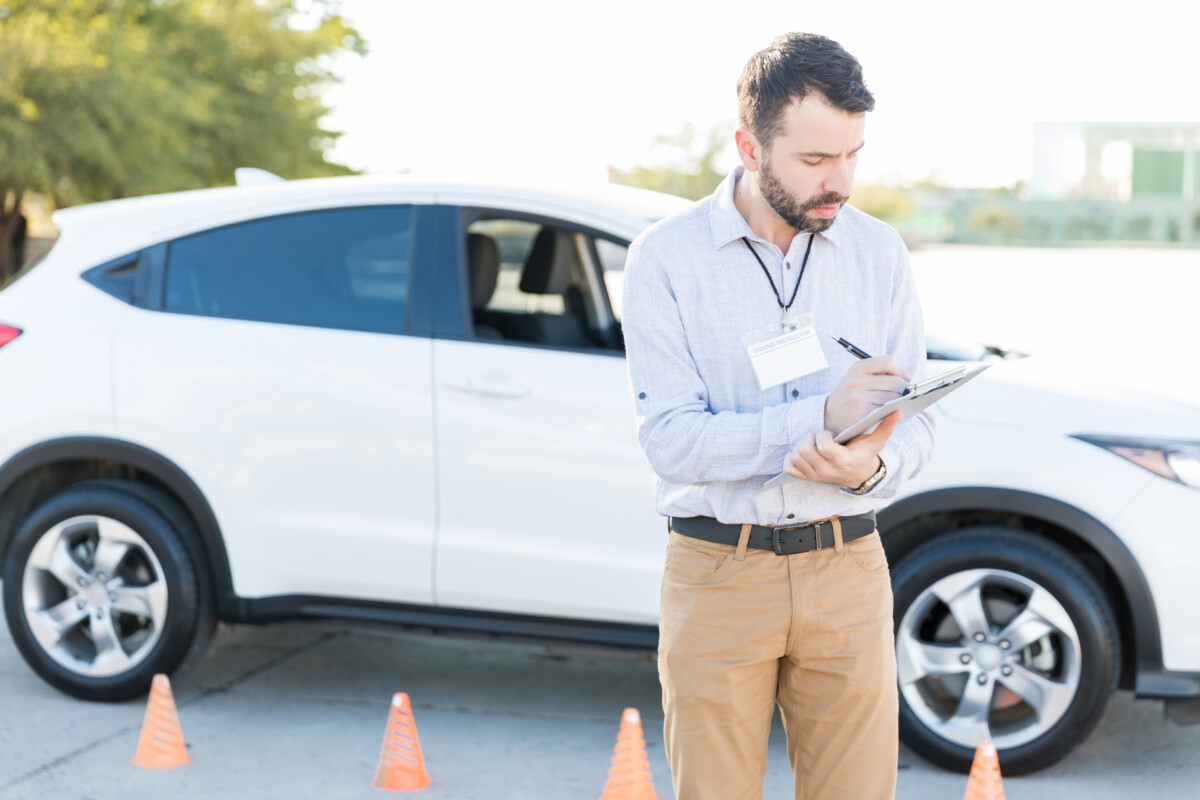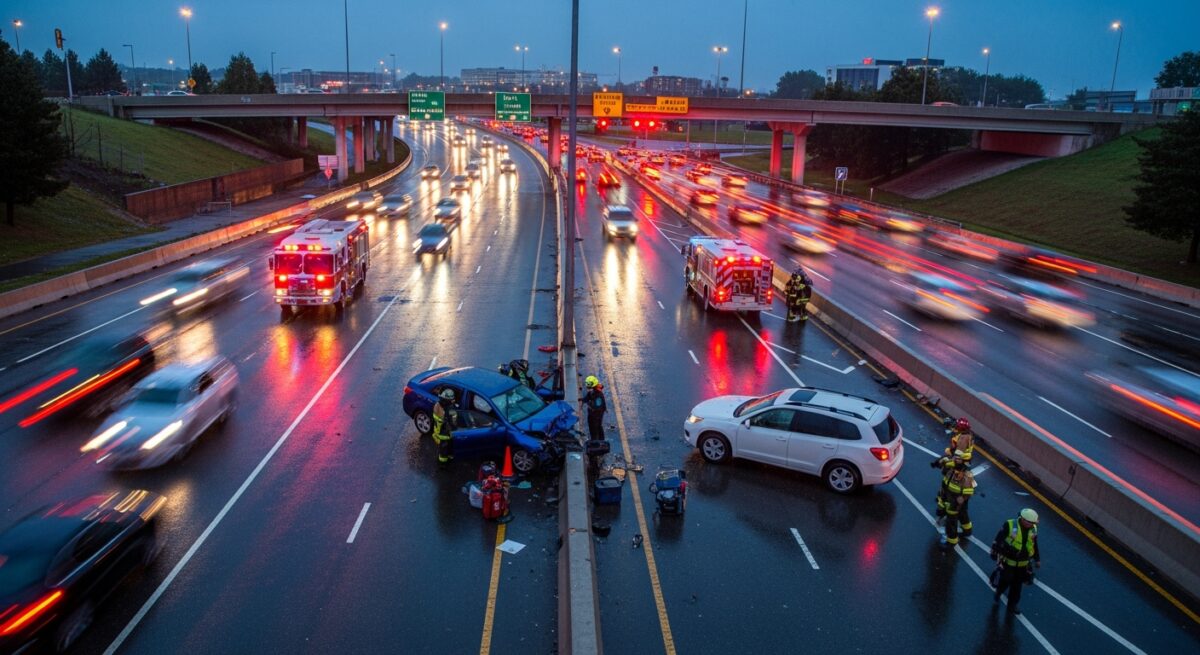Motor Vehicle Accident Examination: How to Prepare for Your Visit

Motor vehicle accident examination is essential for determining the causes and consequences of vehicle collisions. This process is vital not only for legal proceedings but also for enhancing road safety and preventing future accidents. By analyzing various factors involved in an accident, experts can provide insights that lead to improved regulations and driver education.
Understanding Motor Vehicle Accident Examination
The Importance of Motor Vehicle Accident Examination
This examination is crucial in the aftermath of a collision, involving a thorough investigation of the accident scene, vehicles, and involved parties. Its significance includes:
- Legal Clarity: Establishes liability and is critical in court cases.
- Insurance Claims: Facilitates efficient processing of claims.
- Safety Improvements: Findings can prompt changes in traffic laws or road designs.
Key Components of the Examination Process
Several key components are evaluated during a motor vehicle accident examination:
- Scene Analysis: Investigators look for evidence like skid marks and vehicle positions.
- Vehicle Inspection: Each vehicle is checked for mechanical failures or damages.
- Witness Statements: Accounts from witnesses provide context regarding the accident.
Statistics on Motor Vehicle Accidents
Understanding the scope of motor vehicle accidents underscores the need for thorough examinations:
- The NHTSA reported approximately 38,680 fatalities in 2020 in the U.S.
- The economic cost of these accidents exceeds $871 billion annually, factoring in medical expenses and lost productivity.
Recognizing the significance of motor vehicle accident examination helps foster safer driving environments and holds responsible parties accountable.
Key Components of Accident Investigation
Motor vehicle accident examination is crucial for determining the causes and consequences of traffic collisions. This process is vital for law enforcement, insurance companies, and legal professionals, as thorough investigations can enhance road safety and reduce future incidents. Let’s explore the key components of accident investigation.
Scene Assessment
- Initial Response: First responders secure the scene to prevent further accidents.
- Evidence Collection: This involves taking photographs, measuring distances, and collecting debris.
- Witness Statements: Accounts from witnesses provide crucial insights into the accident.
Scene assessment is foundational in motor vehicle accident examination, allowing investigators to reconstruct events leading to the collision. The National Highway Traffic Safety Administration (NHTSA) reports nearly 6 million police-reported crashes annually in the U.S., underscoring the need for thorough investigations.
Vehicle Examination
- Damage Analysis: Inspecting vehicles helps determine the point of impact and collision severity.
- Mechanical Inspection: Checking for pre-existing mechanical issues that may have contributed to the accident.
- Data Retrieval: Modern vehicles often have event data recorders (EDRs) that provide valuable information about speed and braking.
Vehicle examination is essential for understanding crash dynamics, as highlighted by the Insurance Institute for Highway Safety (IIHS).
Driver Behavior Analysis
- Substance Testing: Checking for alcohol or drugs in the driver’s system.
- Driving History: Reviewing the driver’s past behavior and violations.
- Distraction Factors: Investigating distractions like mobile devices.
Driver behavior analysis is critical for understanding human factors in accidents. The CDC states that distracted driving causes approximately 391,000 injuries annually in the U.S., emphasizing the need for comprehensive investigations.
The Role of Forensic Experts in Accident Analysis
Motor vehicle accident examination is a critical process that helps determine the causes and consequences of traffic collisions. Understanding the dynamics of these accidents is essential not only for legal proceedings but also for improving road safety. Forensic experts play a pivotal role in this examination, providing insights that can lead to better prevention strategies and accountability.
Forensic experts are specialized professionals who analyze the physical evidence from motor vehicle accidents. Their expertise is crucial in reconstructing the events leading up to a crash. Here’s how they contribute:
Accident Reconstruction
- Forensic experts use various techniques to recreate the accident scene.
- They analyze skid marks, vehicle damage, and the positions of vehicles post-collision.
- This reconstruction helps in understanding the speed, direction, and impact of the vehicles involved.
Evidence Collection
- Gathering evidence is a meticulous process that includes photographs, witness statements, and physical debris.
- Forensic experts ensure that all evidence is collected and preserved correctly to maintain its integrity for legal purposes.
- According to the National Highway Traffic Safety Administration (NHTSA), proper evidence collection can significantly influence the outcome of legal cases.
Expert Testimony
- Forensic experts often provide testimony in court regarding their findings.
- Their professional opinions can clarify complex technical details for judges and juries.
- Statistics show that cases with expert testimony have a higher chance of favorable outcomes for the parties involved.
- In fact, a study indicated that 70% of cases with forensic analysis resulted in a clearer understanding of liability.
Common Causes of Motor Vehicle Accidents
Motor vehicle accident examination is essential for identifying the causes and circumstances of vehicle collisions, which aids in legal proceedings and enhances road safety. By understanding the common causes of motor vehicle accidents, we can work towards preventing future incidents and improving safety for all road users.
Distracted Driving
- This is a leading cause of accidents, involving activities like texting or talking on the phone. The NHTSA reported that in 2019, 9% of fatal crashes involved distracted drivers, emphasizing the need for focus while driving.
Speeding
- Speeding reduces reaction time to sudden traffic changes. The NHTSA found that speeding contributed to 26% of traffic fatalities in 2019, highlighting the importance of adhering to speed limits.
Driving Under the Influence
- Impaired driving significantly increases accident risk. In 2019, 28% of traffic fatalities involved alcohol impairment, underscoring the need for designated drivers and awareness campaigns.
Weather Conditions
- Adverse weather can increase accident risk, with the Federal Highway Administration noting that about 21% of crashes are weather-related. Drivers should adjust their speed and following distance in poor conditions.
Running Red Lights and Stop Signs
- Ignoring traffic signals is a common cause of intersection accidents. The IIHS reported that 846 people died in 2019 due to red light running, stressing the importance of obeying traffic signals.
Legal Implications of Accident Examination
Motor vehicle accident examination is essential for determining the causes and consequences of road accidents. This process not only clarifies what went wrong but also plays a crucial role in subsequent legal proceedings. By analyzing accident details, professionals provide insights that influence insurance claims, liability determinations, and potential criminal charges. Understanding the legal implications of these examinations is vital for victims, insurance companies, and legal representatives alike.
Accident examinations have significant legal implications, serving as a foundation for establishing fault and liability, which can affect compensation and legal outcomes.
Establishing Liability
- Determining Fault: These examinations identify who is at fault, crucial for insurance claims and lawsuits.
- Evidence Collection: Gathering evidence like photographs and witness statements can greatly impact legal proceedings.
In 2020, around 38,680 people died in motor vehicle crashes in the U.S., underscoring the importance of accurate examinations for accountability.
Insurance Claims and Settlements
- Claim Validation: Insurance companies depend on these examinations to validate claims and determine payouts.
- Negotiation Leverage: Thorough examinations can enhance negotiation power, ensuring fair compensation for victims.
Criminal Charges
- Potential for Prosecution: Findings can lead to criminal charges in cases of negligence or reckless driving.
- Court Testimonies: Expert witnesses may testify based on examination results, influencing court decisions.
The implications of accident examinations extend into criminal law, especially if a driver is found under the influence, leading to serious legal consequences.
FAQ: Motor Vehicle Accident Examination
Q1: What is a physical exam after a car accident?
A: A physical exam after a car accident is a medical evaluation to assess injuries, including checking for pain, range of motion, neurological function, and any signs of trauma related to the accident.
Q2: What information is exchanged in a car accident?
A: Drivers exchange essential details such as names, contact information, driver’s license numbers, insurance details, vehicle information, and sometimes photos of the accident scene.
Q3: What is the ICD-10 code for motor vehicle accident?
A: ICD-10 codes related to motor vehicle accidents typically start with the V codes (e.g., V43 for car occupant injured in collision) and injury-specific codes like S codes with seventh characters indicating encounter type (initial, subsequent, sequela).
Q4: What is the MVA physical exam?
A: The MVA (Motor Vehicle Accident) physical exam is a targeted medical assessment conducted after a crash to identify injuries, guide treatment, and document findings for insurance and legal purposes.
Final Thoughts
A thorough motor vehicle accident examination is crucial for identifying hidden injuries and ensuring proper care. Accurate information exchange and proper coding support smooth medical and insurance processes after an accident.
Your legal journey starts here—visit LegalCaseReview.com or dial 📞 (833) 670-8682.


